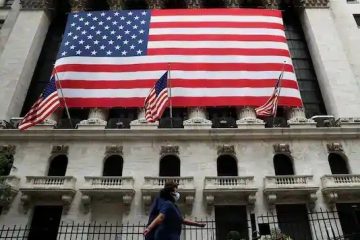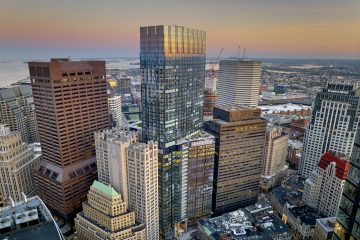Wakandanomics

“THIS will require a quick lesson in global economics…bear with me,” says Erik Killmonger, the muscular villain in “Black Panther”, a long-running Marvel Comics series. In that saga and the recent film it inspired, Killmonger and the Black Panther vie for the throne of Wakanda, a fictional African kingdom little known to the outside world. A land of great wealth and technological sophistication, it lends itself to several quick lessons in economics. Bear with us.
The source of Wakanda’s riches is its “great mound” of vibranium, a versatile ore left behind by a meteor strike, which can absorb sound and motion. Like other deposits of natural treasure, Wakanda’s vibranium attracts some vicious intruders. But unlike some other resource-rich countries, Wakanda has never succumbed to outside foes.
That has helped it escape the “resource curse”, in which natural riches keep a country poor by crowding out manufacturing or ushering in predatory government. The curse is greatly feared. But Wakanda’s success in eluding it is not as fantastical as widely believed. Many resource-rich economies, including Botswana and Norway, have prospered without superheroic help. According to an article in 2015 by Brock Smith of Montana State University, the 17 countries that discovered big oil, gas or diamond deposits after 1950 achieved GDP per person 40% higher on average than if they had continued to evolve in line with their peers.
Belief in the resource curse may partly rest on a statistical illusion. Countries that use natural riches well tend to enjoy vibrant economies of which resources are a diminishing share. As their GDP grows, the size of their mining, drilling or logging sector relative to their GDP falls. They may then appear less “resource-rich” than stagnant economies that depend heavily on natural bounty. Though vibranium is woven into Wakanda’s flourishing economy, mining it is probably now a small part of GDP, especially as its near-inexhaustible supply has presumably driven down its price, giving it a smaller weight in the national accounts.
Wakanda’s stewardship of its natural resources is, however, unusual in another respect. The country not only mines vibranium but designs and builds a dazzling variety of downstream applications. They include a nano-tech panthersuit that absorbs blows and bullets, then echoes the energy back against its source. The suit is matched by sneakers that silence the king’s footsteps, replacing sandals that his sister mocks (“What are those?”). The applications extend to weaponry and transport, such as the royal talon fighter that zips from Wakanda to Oakland, California, and the vibranium rail above which high-tech chariots levitate.
“Wakanda’s upstream, midstream and downstream mineral sector are entirely controlled by Wakanda itself,” points out Nicola Woodroffe of the Natural Resource Governance Institute, a think-tank in London. It is as if Botswana not only mined, cut and polished diamonds, but also designed and produced the world’s diamond necklaces, drills and bearings. It is as if Norway had a monopoly on oil, petrochemicals and plastics.
Comics deal in fantasy and wish fulfilment. And it is the economic wish of many resource-dependent countries to master the more refined products that lie further along the value chain. In the minds of many policymakers, this is “a logical, natural progression”, said Ricardo Hausmann, Bailey Klinger and Robert Lawrence of Harvard University in a paper in 2008. In pursuit of “beneficiation”, as it is called, policymakers often impose heavy taxes or even bans on the export of raw, unprocessed minerals.
In the film Wakanda goes further still, barring the export even of finished, manufactured items. Its economy prospers in seclusion and autarky. The sole supplier of vibranium and its applications, it is practically the sole buyer as well. It is as if Norwegians were the only consumers of petrochemicals, or the people of Botswana the only wearers of diamond necklaces.
In reality, rather than Marvel, forced beneficiation is rarely beneficial. Countries blessed with natural resources are not always blessed with the combination of labour, capital, skill and infrastructure required to succeed further down the same production chain. The best place to cut and polish diamonds is not Botswana, with its population of 2.3m, but coastal India, which can bring many more hands to bear.
Countries often find it easier to move diagonally, rather than vertically, graduating into products that belong to different value chains but require similar mixes of labour, capital and knowhow. According to Mr Hausmann and his co-authors, only a third of raw-sugar exporters also export confectionery. But two-thirds export clothing. Only a third of raw gold and silver exporters also export jewellery and silverware. But over half export fish.
Erikonomics
Not every Wakandan supports the country’s economic isolation. Indeed, the comic-book version of Killmonger (unlike his on-screen counterpart) reveals a rival economic creed of his own. Boasting an MBA, he has turned his Wakandan birthplace into a corporate playground, including what look like a Burger King and a McDonald’s. After he lays his hands on Wakanda’s sacred heart-shaped herb, which enhances strength, speed and the senses, his first thought is to find a way to market it. When the Black Panther tries to thwart his economic schemes by expropriating all foreign companies, Killmonger foresees the result: financial panic, retaliatory sanctions and economic chaos.
Fortunately for Wakanda’s economy, the Black Panther soon reverses course. After battling zombies, aliens, rogue bodyguards and the Hulk, he turns his might to restoring market confidence. What superpower or mystical rite allows him to pull off this heroic feat? A peg to the American dollar.






